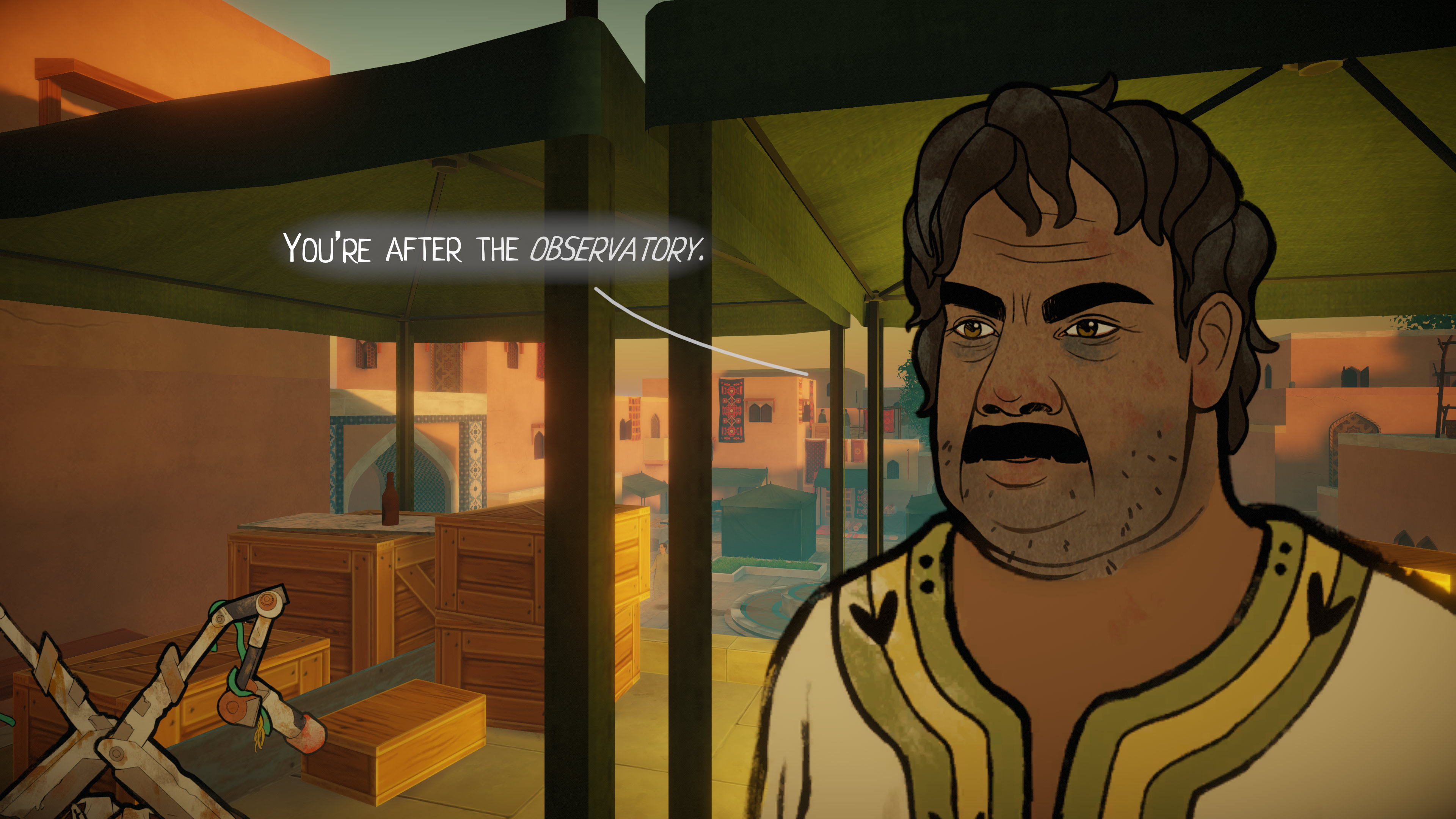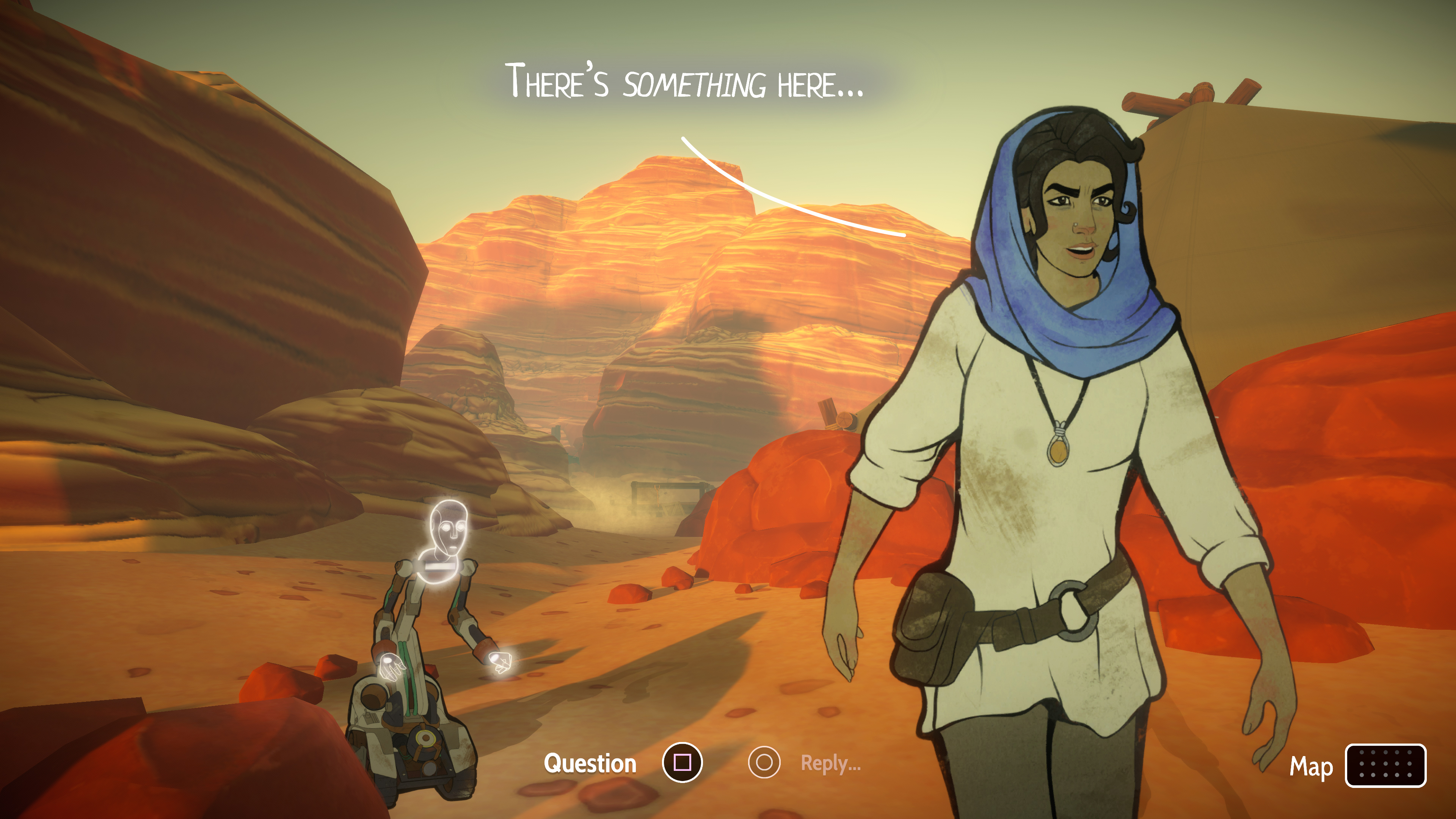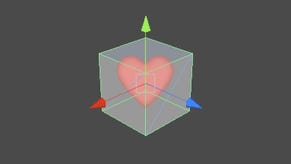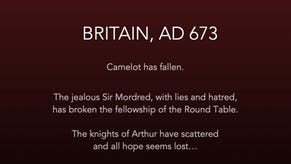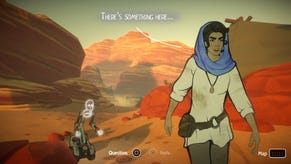Heaven's Vault preview: an ouroboros of wordery
Words' worth
I love words, me. They’re so expressive and weird and can do so much. I think of people who are very good at word-balling as like conductors mixed with magicians. They marshall all these weird squiggles into a specific order that make other people spontaneously feel real feelings, in whatever order they want. Madness! And the origins and cross-pollinations of language, especially one as terrible as English (consider the words ‘content’ and ‘content’ for example) that you can study words specifically, which is called etymology.
For example, did you know that avocados and orchids are both basically big swinging balls? Avocado is a corruption of the Aztec word for testicle, and orchid comes from the Ancient Greek for same, orchis*. This once again goes to show that humans have evolved very little. But we have at least evolved to the point that we can make video games with an etymological flair. That gold standard segue leads me to Heaven’s Vault.
Brendy, Adam and Katharine have all made positive noises about Heaven’s Vault, the upcoming translate ‘em up from 80 Days studio Inkle. A new preview build has been passed around, so I have played a bigger slice of the early game, and chumped around with my robot pal Six on the trail of a missing academic.
Player character Aliya finds inscriptions and books that contain fragments of the ancient language of the Empire, a language of loops and swirls that looks, of course, preposterous next to our language made of completely not arbitrary shapes to which we have ascribed meaning. Context is key: this unknown word appears in the title of two books, so probably means ‘book’. I played the preview build through twice because the fluff says that how you translate things can make a difference to the conclusions Aliya comes to. Reader, it does! I found some words scratched into a bed in a deserted home, and translated them in a way that made Aliya place a time of death. I made her question the early history of her planet by theorising that an empress may have ‘buried robots’; choosing ‘banished rebels’ earlier had made her a bit confused.
Brendy has already gone into some detail on how the language in Heaven's Vault is constructed, though. What this preview build has revealed to me is more of the world that Aliya lives in. Because context for what words mean isn’t just physical. Culture plays a huge part as well! An alien visiting Glasgow would, from context, probably translate the bad c word as meaning “treasured friend”, and then make a dreadful faux pas on a trip to Los Angeles. Aliya’s world has hidden depths, wherein, you sense, are metaphorical sharks.
Inquisitive players are rewarded for commenting and asking questions when the opportunity arises. Aliya specialises in archaeology and history, and you find out that her fellows do not see as a worthwhile science; one of them even says that they’re “decent people” who don’t want anything to do with history. So that's pretty weird. Then there’s Six, your robot gr8 m8. Robots aren’t uncommon, but it seems like a lot of them were found rather than invented, and Six is a weird mixture of subservient concern and cold detachment.
Aliya studied at the university on Iox, but was born on, and plucked from, a poorer moon in The Nebula system. Iox used to have an empire, and now settles with a protectorate of the said scattered moons in said Nebula. Some of them have to give tithes to Iox, are kept in a perpetual state of oppressed agrarianism, and are not fans of anyone with an Ioxian accent. There’s a bit of a religious flavour to how everyone speaks, but I can’t quite tell if it’s a cultural hangover, or if only one religion is encouraged and others are outright banned.
The language you’re translating is the ancient language of the fallen empire, though, so by asking questions you’re not just rewarded with interesting storytelling, you’re making your translation work a little bit easier each time. If you explore a moon and find that it has a wellspring of water deep underground, for example, it makes more sense that a giant statue would be inscribed with “water goddess” than “sky goddess”. A brooch might well read “beloved friend” on the back, ‘cos that’s the sort of thing people put on brooches, but if you know it’s depicting the ancient symbol of the empire, you might change your translation.
The little glimpse I saw of the world in Heaven’s Vault is fascinating; the game has the potential to be, in full, a lovely ouroboros of wordery, where understanding cultural history is the key to the translation, but the translation is also key to understanding cultural history. I am, predictably, excited to see more. (Excited: enthusiastic, encouraged, lively…)
*My source for this is The Etymologicon by Mark Forsyth, which is a very interesting and very good book.



